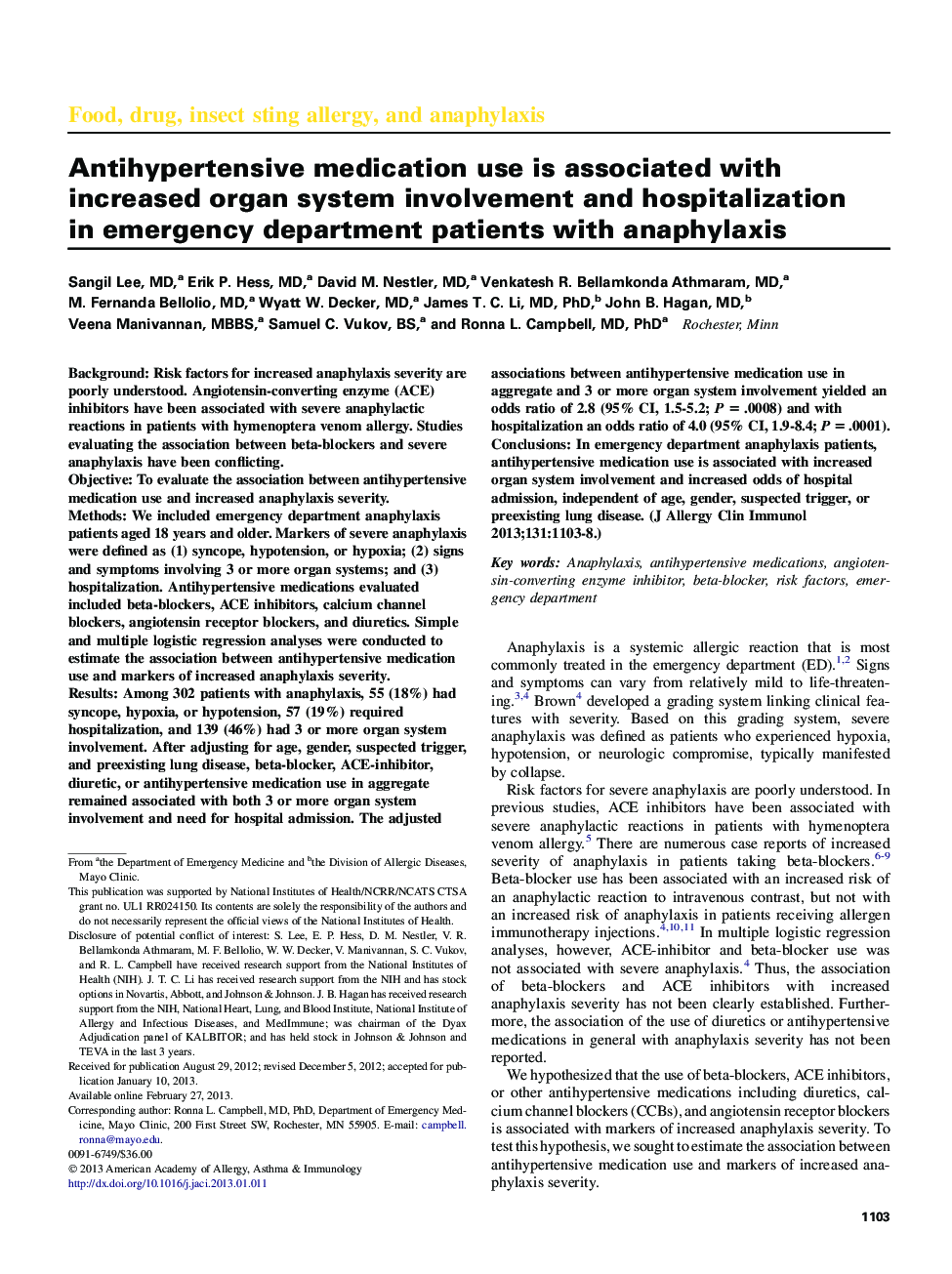| Article ID | Journal | Published Year | Pages | File Type |
|---|---|---|---|---|
| 6066470 | Journal of Allergy and Clinical Immunology | 2013 | 6 Pages |
BackgroundRisk factors for increased anaphylaxis severity are poorly understood. Angiotensin-converting enzyme (ACE) inhibitors have been associated with severe anaphylactic reactions in patients with hymenoptera venom allergy. Studies evaluating the association between beta-blockers and severe anaphylaxis have been conflicting.ObjectiveTo evaluate the association between antihypertensive medication use and increased anaphylaxis severity.MethodsWe included emergency department anaphylaxis patients aged 18 years and older. Markers of severe anaphylaxis were defined as (1) syncope, hypotension, or hypoxia; (2) signs and symptoms involving 3 or more organ systems; and (3) hospitalization. Antihypertensive medications evaluated included beta-blockers, ACE inhibitors, calcium channel blockers, angiotensin receptor blockers, and diuretics. Simple and multiple logistic regression analyses were conducted to estimate the association between antihypertensive medication use and markers of increased anaphylaxis severity.ResultsAmong 302 patients with anaphylaxis, 55 (18%) had syncope, hypoxia, or hypotension, 57 (19%) required hospitalization, and 139 (46%) had 3 or more organ system involvement. After adjusting for age, gender, suspected trigger, and preexisting lung disease, beta-blocker, ACE-inhibitor, diuretic, or antihypertensive medication use in aggregate remained associated with both 3 or more organ system involvement and need for hospital admission. The adjusted associations between antihypertensive medication use in aggregate and 3 or more organ system involvement yielded an odds ratio of 2.8 (95% CI, 1.5-5.2; PÂ =Â .0008) and with hospitalization an odds ratio of 4.0 (95% CI, 1.9-8.4; PÂ =Â .0001).ConclusionsIn emergency department anaphylaxis patients, antihypertensive medication use is associated with increased organ system involvement and increased odds of hospital admission, independent of age, gender, suspected trigger, or preexisting lung disease.
